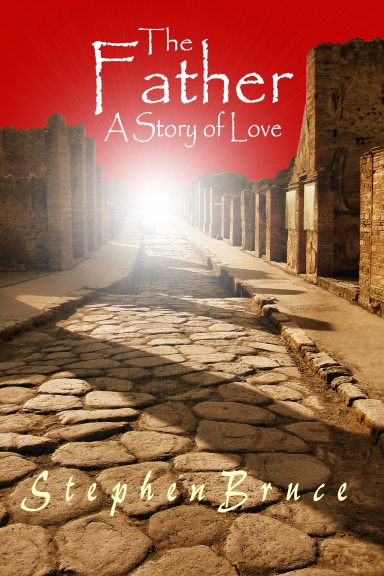 Available
at LULU.COM
Available
at LULU.COMStrikingly evocative and populated with deeply human characters, The Father takes us back 2000 years into the lives of Joseph, Pilate, Hera, and Mary Magdalene, brilliantly presenting each as a living, thinking, feeling human being. The author's emphasis on characters brings the story to life and gives it a vitality that is missing from many mainstream efforts. The characters and their story are honest, deeply felt and richly imagined, making The Father a must read for anyone interested in historical fiction dealing with the circumstances and key people involved with the death of Jesus and its aftermath. The Father is a worthy companion to Gibson's Passion, and will be of interest to anyone who has seen that film.
The book opens with a highly emotional scene of Joseph's witness of his son's carrying the cross through the hot, dusty streets filled with jeering crowds. The father's internal anguish, confusion, and rage are deeply moving as one can't help but identify with Joseph and his pain. The poor man latter comes to Pilate seeking the release of his son's body, but becomes involved in Hera's insane intrigue, with the unexpected result of changing her in the end.
This change is one of the central themes of the book—change affected by Jesus upon those who knew him directly and those who came in contact, like Hera with Joseph, with those who knew Jesus.
Another aspect of The Father is the stellar writing, a kind of narrative that places us right in the dusty Jerusalem of antiquity:
It was one of the many narrow little back streets which criss-crossed Jerusalem, lined with beggars, stalls and one or two inns. She could see children running barefoot up and down, the soles of their feet turned to leather from running over the hot, sharp stones. She saw one young boy, no more than eleven, grab a small bunch of grapes from one of the stalls and run off with it. The owner of the stall was obviously inexperienced for he ran after the boy, leaving his stall exposed to a band of boys who stuffed as much food as they could into their mouths and arms before the owner returned.
It is such powerful writing, combined with deeply evoked characters, that makes The Father not just a read but an experience.
No comments:
Post a Comment